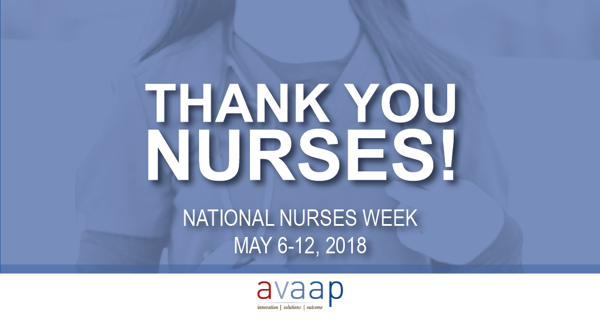Informatics, nursing, and the workforce
The annual nurses appreciation week is underway and we’re celebrating all nurses but with a special appreciation for nursing informatics and the critical role it plays in the post-EHR implementation era. While the last decade saw providers bringing their computerized physician order entry (CPOE) and electronic health record (EHR) systems live to meet mandates or incentives, the first wave of EHR implementation is now complete for the majority of large healthcare IDNs. Provider needs are now shifting from training and optimization to interoperability, data analytics, and demonstrating value. As a result, nurses with informatics training and expertise are in higher demand.
The liaison between technology and people
Nursing informatics (NI) - the specialty that integrates nursing science with multiple information management and analytical sciences to identify, define, manage, and communicate data, information, knowledge, and wisdom in nursing practice - has continued to evolve since it was formally recognized as a nursing specialty by the American Nurses Association in 1992. Today, more than 100+ institutions offer varied Nursing Informatics degrees as a part of their nursing programs with more nurses pursuing specialized education in technology and analytics.
The HIMSS 2017 Nursing Informatics Workforce Survey suggests that nurse informaticists play a crucial role in the development, implementation, and optimization of clinical applications, including nursing clinical documentation, CPOE, and electronic health records. Bedside practitioners able to speak the clinical language as well as the technology language, with knowledge and expertise in implementing EHRs and clinical systems, can influence design of the system for greater usability and satisfaction, accelerate the solving of interoperability challenges, and have greater impact on patient care.
As the specialty matures, demand is growing for clinical information officers, nurse educators, vendor representatives, and public health informatics, among other informatic specialties. The Advance Healthcare Network for Nurses reports that as many as 70,000 health informatics specialists will be required within the next few years.

Nursing informatics in the post-EHR era
Before the EHR, nurses used paper to document important patient information. Nurses now represent the largest group using technology to enter documentation, place orders, and review results with the intent to standardize workflow, get real time visualization of patient information, and drive better outcomes across the continuum of care.
Now that majority of hospitals have some form of an EHR in place, the focus is shifting from implementation to optimization, and increasing usability with the platform while achieving more value from technology investments. Nurses with informatics skills provide structure and support to users impacted by technology from input into the system design to training the workforce on how to use the technology for advantage and translating how healthcare is affected by technology. It’s why more organizations are increasingly giving nursing informatics leaders a seat at the table when it comes to strategy and IT purchasing decisions.
Nursing informatics is at the forefront of healthcare transformation, resulting in greater efficiency, coordination and safety of patient care. If streamlined processes, standardized documentation, and continuous improvement is part of your EHR experience, you might want to thank a nurse for that – they’re the ones leading the charge to optimize clinical workflows and improve patient care and safety.
Michele Behme, RN, is vice president of EHR healthcare at Avaap. She works with nurses, physician groups, and executive leaders to bring EHR expertise, strategy, and program development to improve physician experience, patient engagement, and clinical and business outcomes.

